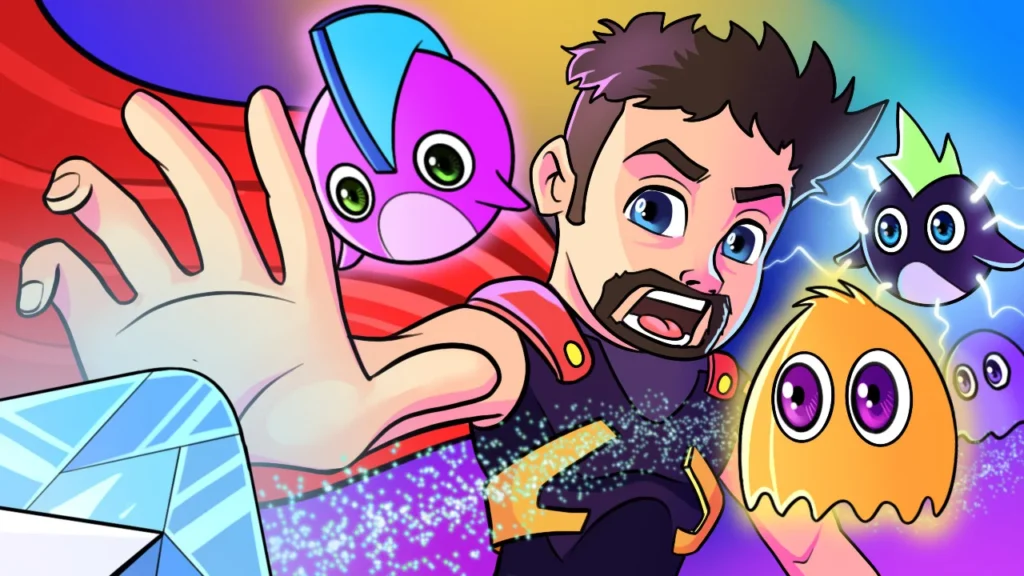Justin Trudeau is the 23rd and current Prime Minister of Canada, having taken office on November 4, 2015. As the leader of the Liberal Party of Canada, Trudeau has become one of the most recognized political figures on the global stage. Known for his progressive views and youthful charisma, he has led Canada through various domestic and international challenges, all while advocating for diversity, environmental sustainability, and social justice.

Trudeau’s leadership has not been without controversy, but his focus on inclusion and climate change, combined with his strong international presence, has left a significant mark on Canadian politics. Whether navigating trade negotiations, domestic social policies, or global diplomacy, Justin Trudeau’s influence continues to shape Canada’s future. This article dives into the key aspects of his political career, his rise to power, and his impact on the world stage.
Early Life and Background of Justin Trudeau
Justin Pierre James Trudeau was born on December 25, 1971, in Ottawa, Canada, to Pierre Trudeau, a former Prime Minister of Canada, and Margaret Trudeau, a former actress. Growing up in the political spotlight, Justin was exposed to the intricacies of political life from an early age. He attended prestigious institutions, including McGill University and the University of British Columbia, where he earned degrees in literature and education.
- Family Legacy: Justin’s father, Pierre Trudeau, was an iconic figure in Canadian politics, serving as Prime Minister for over 15 years. His influence played a significant role in shaping Justin’s political aspirations.
- Early Career: Before entering politics, Justin worked as a teacher and advocate, focusing on issues such as youth engagement and environmental awareness. His career in education set the stage for his later focus on policies concerning education and youth empowerment.
Rise to Political Power
Justin Trudeau’s journey into politics began in 2008 when he ran for the Liberal Party and was elected as a Member of Parliament (MP) for the Montreal riding of Papineau. Despite being relatively new to politics, he quickly gained recognition due to his dynamic presence and strong communication skills.
- Leadership of the Liberal Party: In 2013, after a series of challenges within the party, Justin was elected as the leader of the Liberal Party of Canada. His leadership was pivotal in revitalizing the party, positioning it as a progressive alternative to the Conservative government.
- 2015 Election Victory: In the 2015 federal election, Justin Trudeau’s leadership led the Liberals to a majority victory, and he became the Prime Minister of Canada. His platform was focused on progressive issues such as improving healthcare, gender equality, and climate action.
Justin Trudeau’s Policies and Achievements
Since becoming Prime Minister, Justin Trudeau has implemented a range of progressive policies, many of which align with his commitment to social justice, the environment, and inclusive economic growth.
- Climate Change and the Environment: Trudeau’s government has taken significant steps toward addressing climate change. He implemented a national carbon tax, which aims to reduce greenhouse gas emissions, and also committed to transitioning Canada to a greener economy through investments in clean energy.
- Social Justice and Diversity: Under his leadership, Canada has become more inclusive. Trudeau is a vocal advocate for gender equality, LGBTQ+ rights, and Indigenous reconciliation. In 2016, he made headlines by appointing a gender-balanced cabinet, the first of its kind in Canadian history.
- Economic Policies: Trudeau’s government focused on stimulating the economy by increasing infrastructure spending, reducing taxes for the middle class, and implementing policies designed to help Canada’s growing tech industry.
Controversies and Criticisms
Despite his popularity, Trudeau’s leadership has been marred by various controversies that have sparked debates within the country and beyond.
- The SNC-Lavalin Affair: One of the most significant scandals during his tenure was the SNC-Lavalin affair, which involved allegations of political interference in a criminal case involving a major construction firm. The scandal raised questions about Trudeau’s commitment to transparency and accountability.
- Blackface Scandal: In 2019, a photo surfaced of Trudeau dressed in blackface during an event in the early 2000s, which led to significant public backlash. While Trudeau apologized for the incident, it sparked debates about his personal integrity and the inconsistencies in his leadership.
- Handling of Indigenous Issues: While Trudeau has made efforts toward reconciliation with Indigenous communities, critics argue that his government’s actions on land rights and resource development have not always aligned with the promises made to Indigenous peoples.
Justin Trudeau’s Leadership Style and Global Influence
| Key Feature | Description |
|---|---|
| Progressive Policies | Advocates for climate action, gender equality, and social justice. |
| International Diplomacy | Focuses on multilateralism and strong relationships with allies. |
| Inclusive Leadership | Known for promoting diversity, inclusivity, and youth empowerment. |
| Public Engagement | Uses social media and public speaking to connect with the masses. |
| Crisis Management | Led Canada through the COVID-19 pandemic with support for businesses and individuals. |
Justin Trudeau’s Impact on Canada and the World
Trudeau’s policies and leadership style have had a lasting impact on both Canada and the international community. Here’s a breakdown of his influence:
- Domestic Impact: Trudeau’s efforts to balance economic growth with environmental responsibility have helped shape Canada’s future. His approach to climate change, including his controversial carbon tax, has had a far-reaching effect on Canadian industries and everyday life. He has also placed a strong emphasis on improving healthcare and social programs, which have benefitted Canadian citizens.
- Global Impact: Internationally, Trudeau has positioned Canada as a global leader on issues such as climate change, human rights, and peacekeeping. His support for refugees and commitment to multilateralism have earned him respect on the global stage. Moreover, his friendly approach to diplomacy has allowed Canada to maintain strong ties with nations like the U.S. and European Union members.
- Youth Engagement: Trudeau’s leadership has been marked by his focus on engaging young Canadians. He regularly advocates for youth-led solutions to global challenges and often emphasizes the importance of education and empowerment for younger generations. This focus has led to increased political participation among the youth, especially through his leadership on social media platforms.
Justin Trudeau’s Personal Life and Public Image
Justin Trudeau is known for his approachable, relatable persona. His popularity has been boosted not only by his political views but also by his personal image. Here are some notable aspects:
- Family Life: Trudeau is married to Sophie Grégoire Trudeau, a former television host and philanthropist. The couple has three children, and Justin is often seen publicly engaging with his family, which adds to his image as a family-oriented leader.
- Public Engagement: Known for his charisma, Trudeau often engages with the public, both in person and through social media platforms like Instagram and Twitter. His relatability has made him one of the most accessible political figures in Canada.
- Personal Interests: Trudeau is an avid outdoorsman, practicing activities like kayaking, skiing, and hiking. His physical fitness is often highlighted, and he has been a strong advocate for mental and physical well-being.
Heading 6
Future Prospects: What’s Next for Justin Trudeau?
As Trudeau navigates his third term as Prime Minister, questions about his political future remain at the forefront. While his leadership has faced setbacks, his progressive stance on key issues, such as climate change, economic reform, and social justice, indicates that he may continue to push for change on both the national and international levels.
- Long-Term Vision: Trudeau’s long-term vision involves creating a more inclusive Canada, with policies designed to bridge economic disparities and ensure that Canada remains a leader in environmental sustainability.
- Challenges Ahead: While his popularity remains high, Trudeau will face numerous challenges in the coming years, including dealing with the global economic impact of the COVID-19 pandemic, navigating trade relations, and addressing continued calls for Indigenous rights.
FAQ:
FAQ 1: What were the major achievements of Justin Trudeau’s government?
Justin Trudeau’s government has focused on key areas such as:
- Climate Change: Trudeau introduced a national carbon tax and made significant investments in clean energy.
- Gender Equality: He appointed Canada’s first gender-balanced cabinet and is a vocal advocate for women’s rights.
- Indigenous Reconciliation: Trudeau’s government has made efforts to address past injustices and improve relations with Indigenous communities.
- Health and Education: His government worked to improve healthcare access and funded educational initiatives for young Canadians.
Justin Trudeau has emerged as one of the most influential political figures in modern Canada, combining progressive policies with a unique leadership style that emphasizes inclusivity and diversity. His political journey, achievements, and challenges offer valuable insights into Canadian politics, and his future decisions will likely continue to shape the country’s social and economic landscape.

